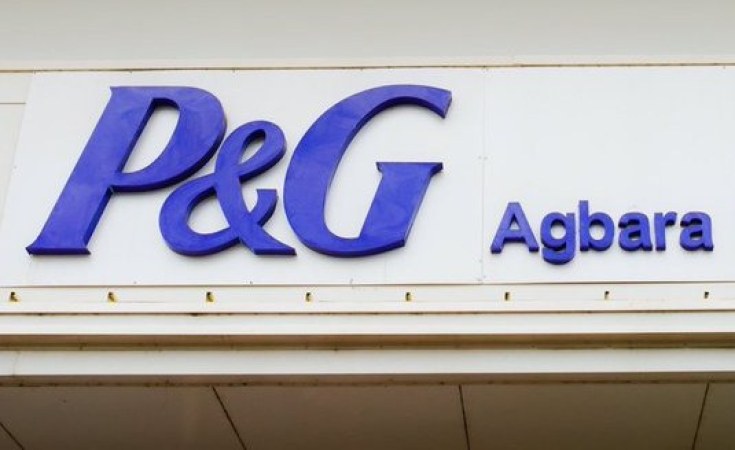The company's chief financial officer (CFO), Andre Schulten, said it is pretty difficult for his company, as a U.S. dollar-denominated business, to create value in the country.
Procter & Gamble (P&G), the multinational consumer goods manufacturer which launched its Nigerian subsidiary in 1993, is shutting down manufacturing activity in Nigeria, joining the fast-expanding ranks of foreign companies that are unable to muddle through the tough business conditions in the country.
The company's chief financial officer (CFO), Andre Schulten, said Tuesday in New York that P&G is taking the decision because it is pretty difficult for his company, as a U.S. dollar-denominated business, to create value in the country.
Four days earlier, Nigeria's Purchasing Manager Index, which indicates the prevailing direction of trends in the manufacturing and service sectors of the economy, had shown that business conditions in November worsened at the most marked pace since the cash crisis early in the year.
P&G will instead resort to an import-only model, joining prominent multinational fast-moving consumer goods (FMCG) companies like GlaxoSmithKline, Unilever and Sanofi-Aventis, which have announced to either partially or totally terminate their manufacturing businesses in Nigeria this year alone.
P&G manufactures iconic homecare brands from Ariel, Safeguard and Oral-B to Always, Pampers and Gillette.
The dollar crisis hinted at by P&G's CFO as a major reason for winding down manufacturing activities cost nine of the top Lagos-listed FMCGs N452.2 billion in foreign exchange loss in the first half of the year, according to PREMIUM TIMES estimate.
Timeline of P&G's problematic operations in Nigeria
In 2018, the manufacturer decided to shut down its factory situated at Agbara Industrial Estate in Ogun State one year after launch.
The cost of building the plant, which was commissioned in June 2017 by former Vice President Yemi Osinbajo, was in the neighbourhood of $300 million, making it the single biggest non-oil investment by a U.S. company in Nigeria at the time.
In terms of scale, the Agbara plant is about the size of P&G's Baltimore factory, one of its biggest globally.
The closure cost 120 workers their jobs, sources told PREMIUM TIMES. According to a company source, only about 30 employees were expected to retain their jobs, and they could either be deployed to the other plant in the country or their roles may be outsourced.
Insiders cited government curbs on the importation of raw materials, high input costs and cut-throat competition among the factors that triggered the shutdown.
''Our competitors invested much less in their factory, can manoeuvre their way in the system, and thus produce and sell for much less. We cannot do that. Our investment in Agbara is arguably the largest single investment by a non-oil firm in Nigeria. But we just have to shut it. The loss is much,'' a top official told PREMIUM TIMES at the time.
P&G had, before closing down the Agbara factory, sold off one of its two plants in Oluyole Estate in Ibadan, which solely produced Vicks lozenges, because that operation was running at a loss.
In July 2018, P&G issued a statement saying it was rejigging its Nigerian operations ''to deliver a more effective business operation for now and sustainably for the future.''
''This will entail an exit from production in its Agbara plant. We will strengthen our manufacturing operations in the Ibadan plant, scale up our contract manufacturing operations as well as continue to invest in our local talents,'' the statement said.
''We believe in Nigeria's potential and are here to stay for the long haul as a key player and part of Nigeria's growth story,'' it added.
In February 2021, sources told PREMIUM TIMES the company had paid off its ''final set of workers'' in its Agbara plant.
''Only the P&G plant in Ibadan is currently being run by the company, and it only produces Ariel detergent. All the other P&IG products in Nigeria are either being imported or produced by another company licensed by P&IG,'' a source said.
Insiders said at the time P&G had outsourced the manufacturing of its bar soap brand Safeguard to a Nigerian company because of the dear cost of producing it.
The company had earlier drawn the blinds on the production of Vicks Lemon Plus, one of its most popular brands. It operated almost entirely on generators for the most part of 2020 in the midst of COVID-19 lockdowns.
As of February 2021, operations at the Ibadan plant, the only functional factory at the time, were skeletal at best, running about three days a week, a source said, noting that P&G could wind down its operations in the country any time soon. The company was producing only Ariel detergent at the time.


